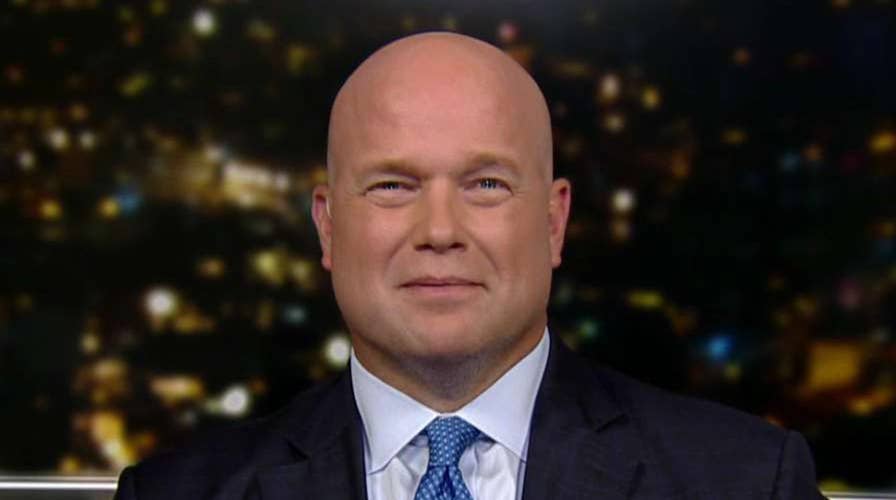Matt Whitaker blasts Trump whistleblower: scurrilous and cowardly
The Deep State tried to use an illegitimate tool to throw up a smokescreen to distract the American people from President Trump's success, says former acting Attorney General Matt Whitaker.
The Democratic media narrative of impeachment portrays President Trump and his administration as serial law-breakers who, true to form, obstruct all congressional investigations of wrongdoing. This then becomes the analytical framework for every new controversy. There are at least two fundamental problems with this.
First, our constitutional system is based on friction between competing branches vested with separate but closely related powers. The framers understood that the two political branches would periodically try to usurp each other’s authorities. Congress often does this by enactments that seek to subject executive power to congressional (or judicial) supervision. Presidential pushback on such laws is not criminal obstruction; it is the Constitution in action.
CLICK HERE TO SIGN UP FOR OUR OPINION NEWSLETTER
Second, we’ve become so law-obsessed that we miss the forest for the trees. Often, the least important aspect of a controversy — viz., whether a law has been violated — becomes the dominant consideration. Short shrift is given to the more consequential aspects, such as whether we are being competently governed or whether power is being abused.
CLICK HERE TO GET THE FOX NEWS APP
These problems are now playing out in the Trump controversy du jour (or should I say de l’heure?): the intelligence community whistleblower.
As this column is written on Friday afternoon, the story is still evolving, with the president tweeting as ever, and The New York Times producing a report by no fewer than eight of its top journalists, joining the seven (and counting) who are working it for the Washington Post, which broke the story.
CLICK HERE TO READ MORE BY ANDREW MCCARTHY
CLICK HERE TO READ THE REST OF THIS COLUMN IN THE NATIONAL REVIEW








































